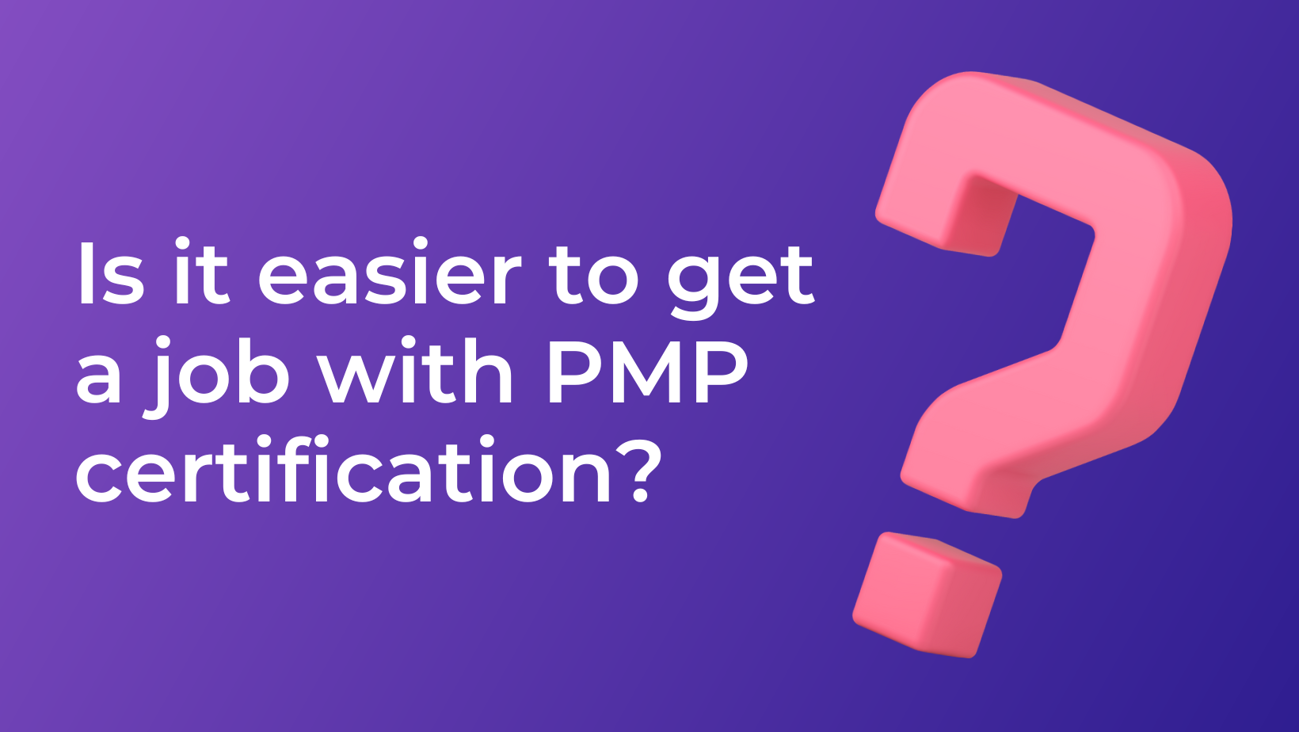Is it easier to get a job with PMP certification?

Why PMP Makes a Difference
Getting your Project Management Professional (PMP) certification can make a big difference when you're searching for a job. Many people want to know if having those three letters after their name will help them land their dream role. The simple truth is that a PMP certification often gives job seekers a real advantage in the job market. Companies value this certification because it tells them someone knows how to handle projects the right way and has put in the work to earn it. When hiring managers spot PMP on a resume, they know that person has met strict requirements and passed a tough test to earn this badge of honor.
How PMP Opens Career Doors
The job market can be hard to find your way through, but having a PMP certification can make things easier. Many companies specifically search for project managers who have this certification when they're hiring. In fact, some jobs even require it before you can apply. A PMP works as a master key - unlocking opportunities that might stay closed without it. Companies are willing to pay more for project managers with PMP certification too. Studies indicate that project managers with PMP often earn more than those without it. This bump in pay happens because companies trust that PMP holders understand their work and can handle big projects well.
When companies post job listings, they often put PMP certification at the top of their requirements. This means that having the certification can push your resume toward the top of the pile. It acts as a VIP pass that gets you noticed first. Plus, when you're competing against other people for the same job, having a PMP can make you stand out. Even if two people have the same experience, the one with PMP certification often gets picked first.
What Makes PMP Special to Employers
Companies prefer hiring people with PMP certification because they know these workers bring special skills to the table. The PMP exam tests lots of important things that project managers need to know, including how to plan projects, work with teams, and solve problems. When someone passes this test, it means they understand these ideas well. This makes employers feel more confident about hiring them.
The certification also indicates that someone is serious about their career in project management. Getting a PMP takes time, money, and lots of studying. When employers read that someone has earned their PMP, they know that person is committed to doing things the right way. They also know this person has learned from the experiences of many other project managers who helped build the PMP guidelines.
Having a PMP means you speak the same language as other project managers around the world. This becomes really helpful when working with different teams or companies. It serves as a universal code that helps everyone work better together. Companies know that hiring someone with a PMP means they're getting a person who can start managing projects right away using tested methods.
Starting Your PMP Path
If you're considering getting your PMP certification to help with your job search, it's good to understand what you need to do. You'll need to have enough experience managing projects before you can take the test. This usually means working as a project manager for a few years first. You'll also need to take some classes about project management before you can try for the certification.
While getting your PMP requires work, most people say it's worth the effort. The study time helps you become better at your job. Plus, once you have the certification, you can keep using it throughout your career. Just keep it current by learning new things about project management every few years.
Many people find that studying for the PMP helps them do their current job better, even before they pass the test. The material you learn while preparing for the certification becomes useful right away. This means you're not just studying for a test - you're gaining skills you can use every day at work.
This story is tagged under...
Project Management ProfessionalInterested in contributing to our blog or partnering with us? Want to share your story of how Crucial Exams helped you? Contact Us .